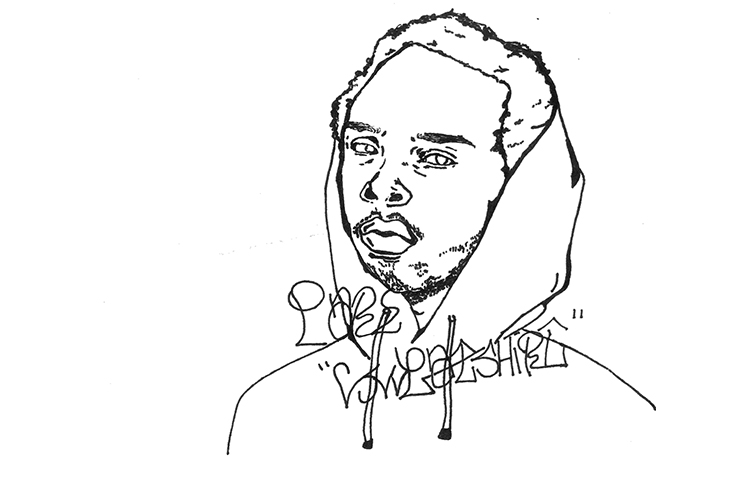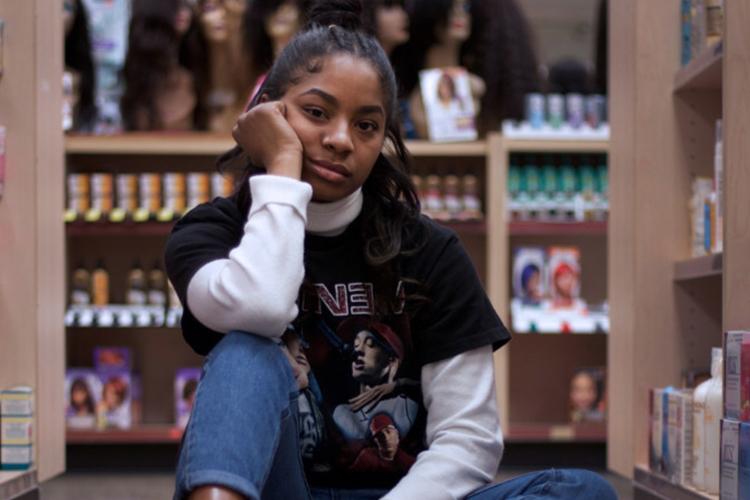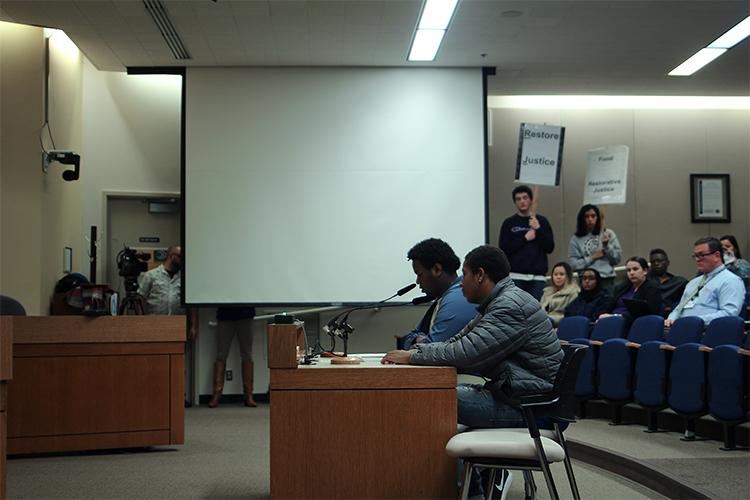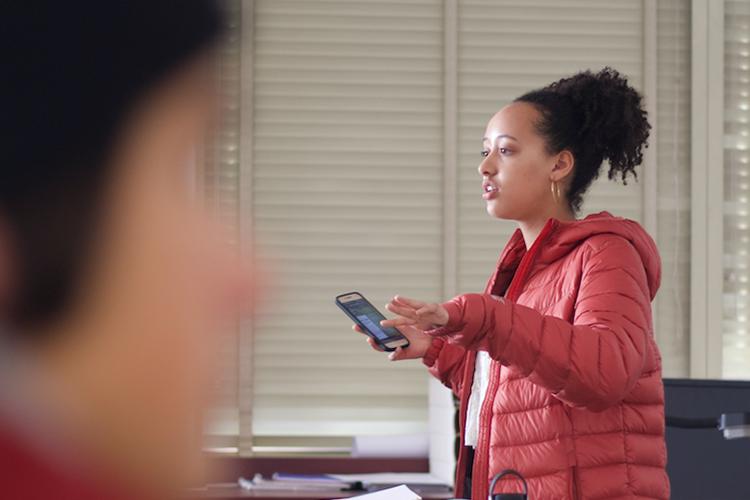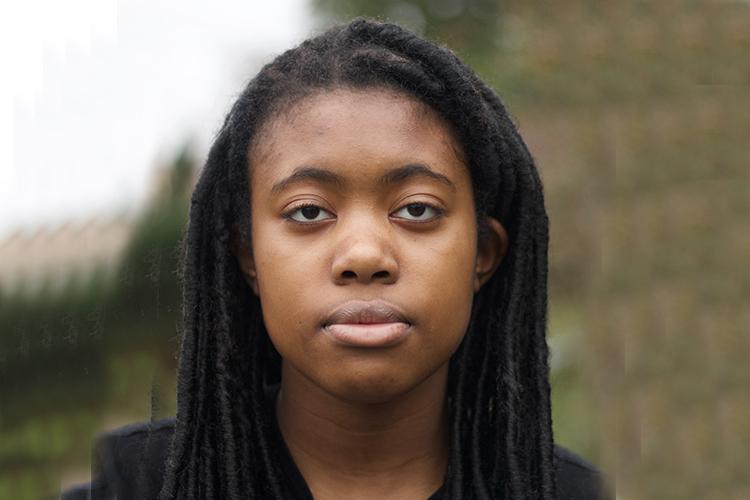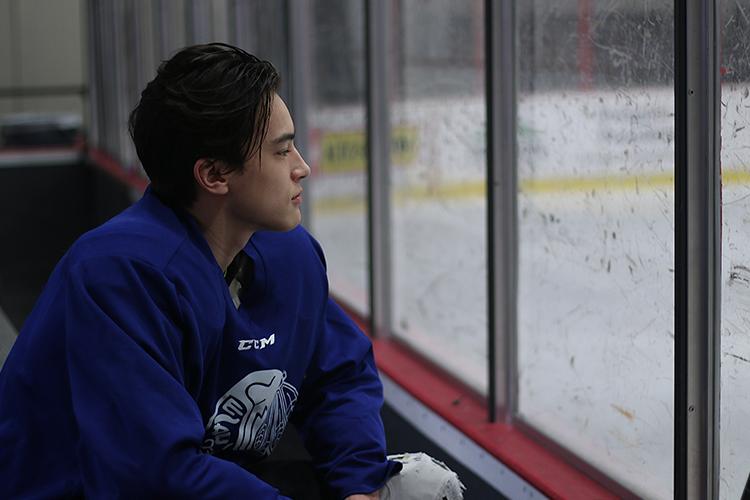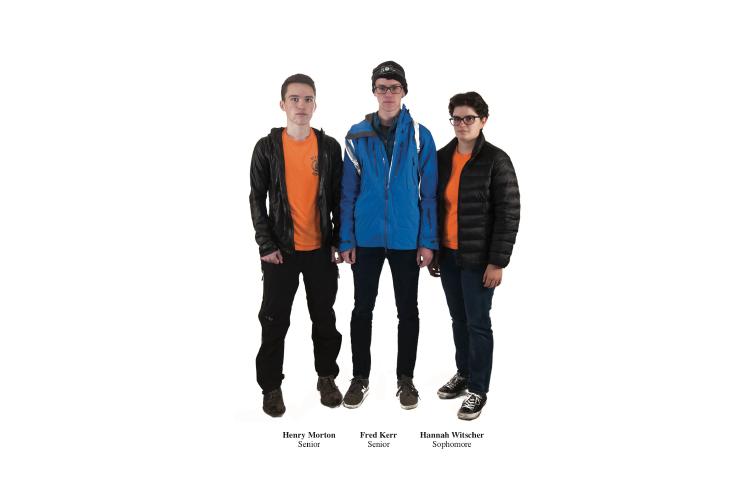
Can you tell me a little bit about Period Club?
Abby Rice: Our Period Club at Grant is an extension of a larger organization called (PERIOD). It was founded in Portland, actually, in 2016 by Nadya Okamoto who was, at that time, a junior at Catlin Gabel. So we have a branch of that organization at Grant. And what we do is we … advocate, educate and serve menstruators in need in the community. At this point, PERIOD is a global organization so it is throughout the world, but our chapter focuses just on Portland menstruators. So, we kind of have three goals there. We educate … so that looks like our meetings on Wednesdays when we talk about various things. We advocate for menstruators, so that means going to school board meetings and doing things like providing the product(s) in the bathroom(s). And then we serve, which looks like packing parties on the weekends and making packages to distribute to homeless menstruators or menstruators in need in Portland. So that’s kind of the basis of the organization.
In addition to packing parties, what other service activities do you do?
AR: So we mostly just do packing parties, but in order to lead up to those packing parties we have donation drives, we have fundraisers … Like in the past few months we’ve had donation boxes at various small businesses in the Northeast community which has been really cool to see how other people who don’t go to this school, like adults especially, (are) donating to us.
How has the Period Club, at Grant specifically, grown since it was started?
Chloe Knott: I don’t know how many people were in the club the first year, but I don’t think it was a ton … And then last year it was like six to eight … It was just our friends, it wasn’t people … who were passionate about it. It was very closed off. And this year we got 135, I think, signatures at club fair, and the first day we had, you know, more people in the room than there were chairs. There were people in the hallway trying to listen. It was incredible. So, and this year I think we have probably 40 people who come solidly every meeting which is really really amazing. You know there’s like 96 people on the Remind (groupchat). So there’s a lot of people who are involved in one way or another.
How has that interest in the club increased your impact on the community?
AR: Oh I think that it’s helped a lot because in just in terms of service, right, we can do so much more with 50 people, 60 people, than we can with eight. And last year we had a packing party that was about four or five hours and we packed 454 packages. This year we had a packing party, maybe about 35, 40 people showed up and we packed 577 packages in about 35 minutes. So just the impact that we can make is so much greater especially in that, in that service aspect of the club. Another implication of having so many more people in the club is that, like, one of our goals is to destigmatize menstruation, right? And having so many more people feel comfortable talking about it and coming to meetings about it and asking questions about it, that just automatically lessens the stigma.
What sets the Period Club apart from other clubs at Grant?
CK: So a big part of it is that it’s for us, but it’s also for homeless menstruators, and it’s for other schools. It’s for everybody. You know … there’s male-identifying people that come in and they learn about birth control. They learn about, you know, environmentally friendly period products … So we’re like really trying to show people that it’s not just about you coming, it’s about you making a difference. And every single person in the room makes a difference. Because they learn something and they bring it to their friends, and they come to packing parties, they package it or they help us do whatever. They help in the morning selling coffee. It’s like, there’s something for everybody to do, and it clearly puts out to somebody else.
Recently you’ve gotten a lot of national recognition. Can you tell me a bit about that?
AR: Yeah, so the organization, (PERIOD), like the parent organization of us, is doing a lot of publicity with relatively large companies like Thinx and Diva Cup. And they’ve been doing this, kind of, outreach petition thing, United for Access. And that’s … universal throughout all of the PERIOD chapters … At the beginning of this year, the organization asked us if we would be one of their champion cohort chapters. So they chose ten chapters in the world to do this. And so we were chosen to be one of them. And what that means for us is we get this petition … We get a lot of press attention so … me and Chloe have been doing a lot of interviews and videos and things which is really, really cool. It’s really cool to be a part of. So it’s not too much national recognition on my and Chloe’s part, but it’s more national recognition on the organization as a whole … It’s really cool to be a part of something so big.
What has that recognition felt like?
CK: It feels so good because, for me, Period Club is not about me. It’s not about me and Abby going to New York to do Period Con. It’s not about us getting in front of the classroom and being the leaders. It’s about the homeless menstruators, and it’s about the people who come to school and who don’t have tampons at home. It’s about them, and what we’re doing for them and how we’re trying to help those people all over the country and all over the world. And it feels so good to know that … signature by signature, view by view, that’s happening.
What does the future of Period Club at Grant look like?
CK: So, with the United for Access project that we’re doing, the campaign, the goal is to get tampons and pads into middle schools too … But the next step is to create a survey with everybody and put those in the bathrooms and be like, ‘Do you think they should be provided for younger menstruators? Do you think they should be provided for menstruators who are just starting their period or haven’t quite yet started their period?’ Because, me personally, I didn’t tell my mom (that I started my period) … It’s so scary … for people who don’t want to tell their moms, or who don’t have tampons or pads at home or are living with, you know, a father figure who maybe they can’t talk to. Anything like that, we want to provide products for them. And so that’s, like, a huge next step. And also, you know, we’re gonna keep educating … through club meetings mostly. And, you know, we’re hoping to do three more fundraisers and three more packing parties.
We followed up with Abby and Chloe about their recent trip to the East Coast for Period Con.
Can you tell me a bit about your trip to New York?
CK: So Period Con is basically … a convention of all sorts of brands. Always and Tampax were there. Diva Cup was there … And you know, they have booths and they talk about what they do, and then there’s panels and one of the panels was about gender inclusivity. One of them was about period poverty. One of them was about … innovation and period products that people are making … One part of that was panels, and one part of that was the booths and the vendors. And then there was workshops on the second day. So one of the workshops was (about) period policy, and that’s the one that me and Abby helped out with.
AR: One (workshop) was called Period Talk and it was about inclusive language and … education and how to teach people about periods without being weird … And then the other one … was called Cup and Cloth, and it was about reusable menstrual products and how to be more environmentally friendly.
CK: And then, you know, there was lots of pictures, and social media opportunities and tons of influencers that we got to meet, which was really, really awesome. So that was Saturday and Sunday. And then on Monday we went to D.C., and this was for our United for Access petition. And it was with … Thinx and with PERIOD … And we protested in front of the U.S. Department of Education building … And then when night fell … we projected this message to Betsy DeVos onto the U.S. Department of Education building that said, “Betsy DeVos, period poverty is real. We demand menstrual equity for all.”





























